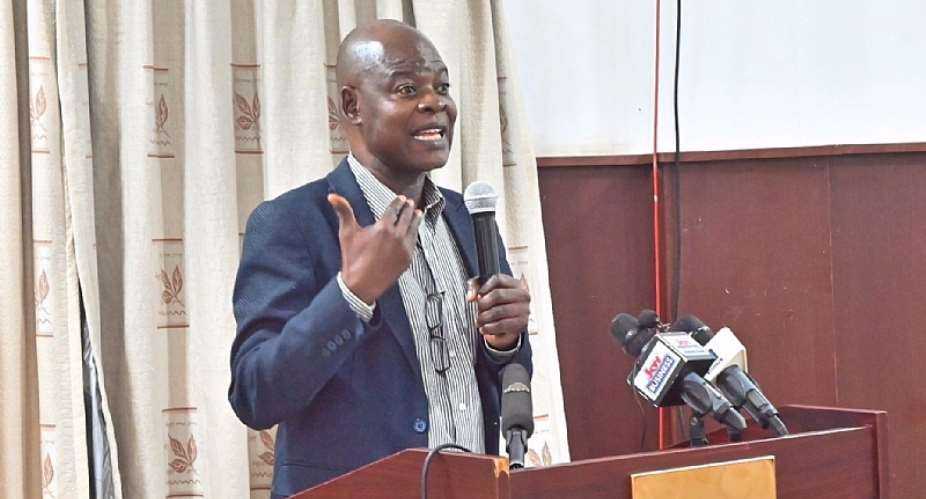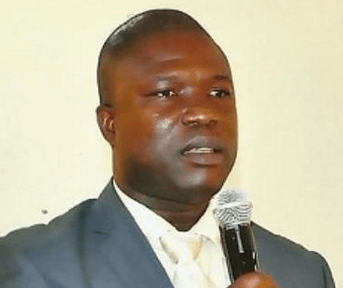
By Fiifi NETTEY
I sat quietly in the corner of my room, lost in thought. My mind drifted to the quiet struggles that many people endure—battles no one sees, pains that go unspoken.
These reflections were sparked by the recent loss of a few wonderful friends to health-related complications. Their deaths hit hard—not just because they were dear to us, but because their struggles were mostly hidden until it was too late to help.

Ghanaians, like many others around the world, are facing increasing personal challenges—emotional, psychological, financial and physical. But in our part of the world, many suffer in silence. Despite our strong family bond and communal systems, people still feel isolated.
We have created a society where people are afraid to open up, not because they don’t want to, but because they are unsure whom to trust about the fear of the unknown.
According to Dr. Carleton (2016), a renowned psychologist and one of the foremost researchers in this area, “the fear of the unknown may be a more fundamental fear than even the fear of death.” He posits that many phobias, anxieties and avoidance behaviours stem not from the content of what we fear, but from not knowing what will happen — a primal discomfort that the human brain naturally tries to resolve.
Many people are silently battling the fear of the unknown, choosing to wait for a miracle rather than open up and risk public embarrassment. This silence often deepens their pain. As a society, we need to do better — we must reach out, check up on one another and offer support with empathy and confidentiality. True help is given not in the spotlight but in quiet moments of trust and understanding.
Stephanie Gorka, a clinical psychologist and research assistant professor at the University of Illinois at Chicago, has examined how sensitivity to uncertain threats—often described as the fear of the unknown—is a shared characteristic across several anxiety disorders, including panic disorder, social anxiety and specific phobias.
Her findings indicate that addressing this underlying sensitivity may pave the way for more effective and broadly applicable therapeutic strategies for treating anxiety.
A colleague shared a story about someone at her office who was seriously ill and going through a difficult time. Despite the weight of her struggles, she chose to carry the burden alone. Eventually, she approached her Human Resource Manager to request additional leave for medical treatment. During their conversation, she decided to open up and confide in her about her condition.
To her shock, shortly after leaving the office, she received a call from another colleague who said she had heard about her situation and wished her well. Though the message seemed kind on the surface, she was devastated—her personal issue had clearly been shared without her consent. She didn’t make a fuss, but the betrayal hurt deeply. She later shared her frustration with my friend, who listened and was able to calm her down.
Yaw, a mechanic, shared that he turns to drugs to cope with his problems. He explained that he is afraid of opening up, fearing his issues might become public. Instead of confiding in his colleagues, he prefers using drugs to numb his pain.
A taxi driver once shared with me how he faced a serious financial crisis. In confidence, he told a friend who promised to help him. But instead of offering support, the friend went around spreading his story. Soon, he became the laughingstock of the neighbourhood. Unable to bear the shame, he eventually packed up and moved back to his village. He told me that from now on, he would rather suffer in silence. In his words, “People are hypocrites — they show compassion on the surface but later mock your struggles behind your back.”
A recent experience brought this reality closer to home. A much older friend approached me to discuss a personal matter. I was surprised that he chose to confide in me, but I listened. We talked at length, and I offered him my thoughts. After some time without hearing from him, I decided to check in.
To my relief, he was doing well. He told me he had followed my advice, and it worked. Then he added something that stuck with me—he said none of the people around us had mentioned anything about our conversation.
I assured him that if he wanted others to know, he would have told them himself. It wasn’t my place to speak on his behalf. He was touched and said, “Waawo! You understand confidentiality.” He went on to share how his trust had been betrayed in the past, leading to a deep sense of pain and isolation. Sadly, he is not alone.
So many people carry the burden of betrayal. A woman I know was devastated when a close friend revealed her health condition—something she hadn’t even shared with her own family. The betrayal was so severe that she had to relocate. She confided that the trauma nearly pushed her into depression. Her friend’s carelessness had caused irreparable damage to her mental and emotional well-being.
For a while now, I’ve been thinking deeply about the fragility of life and how people desperately need someone to talk to—someone who will simply listen without judgment. Yet, they hold back. Why? Because our society has become one where personal issues are treated as gossip material. The moment someone opens up about a sensitive matter, it’s likely to become public knowledge. Instead of receiving empathy and support, they are judged, criticised or mocked.
These experiences are not isolated. All around us, people are choosing silence over support. They would rather carry their burdens alone than risk having their deepest fears and secrets turned into gossip. And while we may not see the pain, it exists—and it’s slowly destroying lives.
It’s time we changed. We must create safe spaces for people to talk, to heal and to be themselves. We must learn to listen without the intention of repeating. We must treat the stories people share with us as sacred, not as fodder for conversations.
Confidentiality is not just a professional ethic—it is a moral responsibility. Until we understand that, many will continue to live in fear of the unknown, suffering quietly until the silence consumes them.
We must seek professional guidance from psychologists, as they are trained to understand human behaviour, recognise emotional and mental patterns and provide expert advice tailored to individual needs. Let us be better. Let us be the reason someone chooses to speak up—and live.
>>>the writer is a media consultant
The post The fear of the unknown appeared first on The Business & Financial Times.
Read Full Story














Facebook
Twitter
Pinterest
Instagram
Google+
YouTube
LinkedIn
RSS